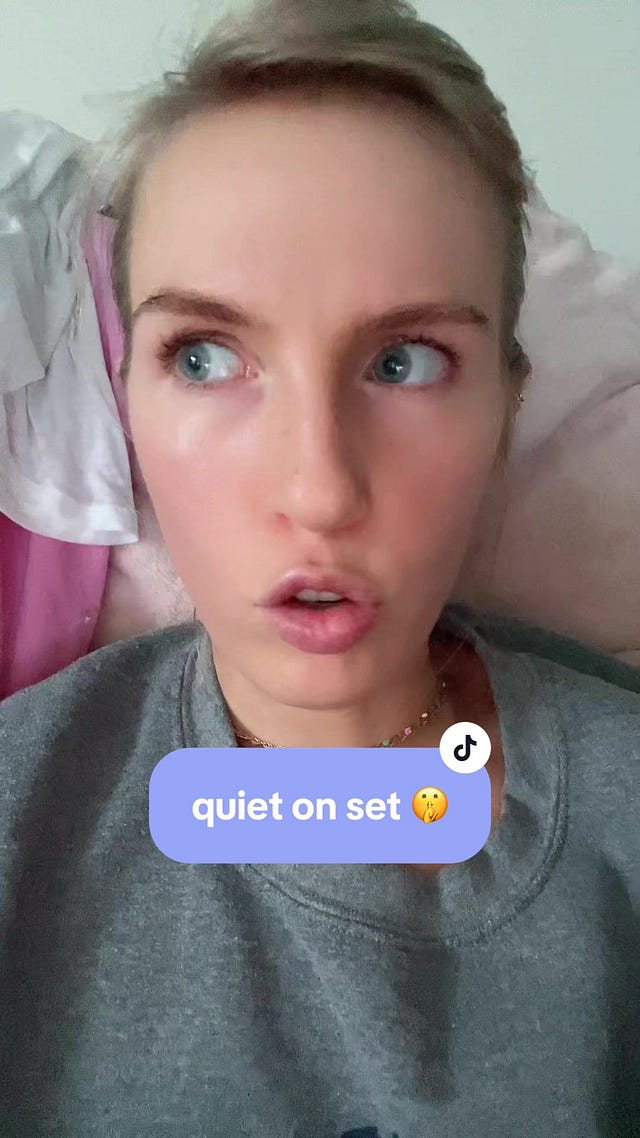Child Abuse and Mental Health Survivors Information - Issue #133
How much would be different if kids were believed?
Another TikTok for you because I think Kate is speaking some hard truths about what it’s like to be a kid being abused by someone with more power in society. And who doesn’t have more power than you when you’re a kid?
Thank you for reading the Child Abuse and Mental Health Survivors newsletter. Each week, I share new blog posts and other resources that aim to help survivors of childhood abuse and those who are struggling with mental health issues feel less alone as we discuss the issues surrounding our issues.
For more information about me and why this newsletter exists, visit the website - Child Abuse Survivor.
Kate is talking about Quiet on the Set; the recent documentary about Nickelodeon shows where kids were being abused amidst quite a lot of gross misbehavior by adults.
She is right to say that it’s all too easy to see a kid or young adult with behavioral issues resulting from their abuse and assume they are not to be believed, especially when the abuser is someone who more easily mixes into society.
It becomes an issue of who to believe—the kid who’s maybe drinking too much or the adult who is well-known in the community. Yet, it is often the kid who is telling the truth.
When we don’t believe them, or they expect not to be believed, they shut down, and then we wonder why we only learn about abuse decades after the fact.
Survivors deserve better. Many of us waste decades of our lives not getting help, not getting support from loved ones, or not talking about our pain at all. Imagine what difference it could make if the child actors could have gotten help immediately in their teen years instead of having their struggles turned into internet memes.
New from the Blogs
40% of Americans are Covered by Medicare or Medicaid and Struggle to Access Mental Healthcare.
We talk a lot in the advocate community about not being alone with mental health issues. I try to encourage anyone to see others who are dealing with the same issues around mental health and childhood abuse and recognize that they are not in this alone. There are many of us out here dealing with the same thing. Many in the US and other countries are alone in accessing care. That should shame us all.
Sharing - The Importance of What Wasn't Provided
The impact of what you weren't given as a child can be just as real as the impacts of physical and sexual abuse. The struggle to navigate relationships and work, emotional immaturity, the lack of trust, the inability to be vulnerable, etc. Those are all things we should be learning throughout life, and they are all something we can learn throughout life. It sure would have been nice to have been able to start that process in childhood, though.
Shared from Elsewhere
Speaking of things you may have lacked in childhood - Were You Emotionally Abused as a Child?
This topic keeps coming up - the earlier we can get help for mental health issues, the better it is for everyone - The Importance of Mental Health Support in Schools.
Worth reading - The Courage of Finding Your Voice after Trauma
From the Archives
I’m not saying we shouldn’t pursue justice, but that can’t be the only goal and the only definition of success. Success when dealing with victims of sexual abuse is in getting them the help they need, keeping them safe, and getting them on the path to healing as soon as they are able. The best part is that we can do that without waiting to see what the criminal justice system comes up with, and we can do it regardless of the results.
People, adults, and children who get put in prison for any reason instantly become the "other" to many people. Since they are somehow not human anymore, when we talk about survivors or those with mental illness, we don't include them. It's as if it's OK that a 15-year-old kid in prison is forced to have sex with a guard because, well, he's male, and he's a delinquent. No sympathy here.
When it Comes to Abuse, Trafficking, and Violence, Do We Have a Race and Gender Problem?
What I want to address, however, is how our society defines victims and how it leaves far too many people behind. The article above is a great example. How many people, if asked about sex trafficking, picture little white girls or women abducted from Target? Probably a lot. For many, the only information they've ever gotten about trafficking are warnings about Target or shopping mall parking lots from their Facebook friends. They don't know how many teenage boys from broken homes, living in poverty, are pulled into being trafficked. How many gay youths, rejected by their families, fall victim to it? How many immigrant children here, with no parental supervision, are sold off by the people who should be protecting them from sexual slavery?
Thanks for reading. If you find this newsletter informative and helpful, spread the word. That’s the best way to thank you for my effort each week.






